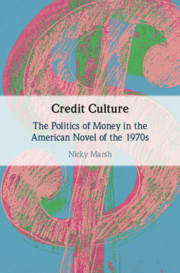
- Cited by 2
-
Cited byCrossref Citations
This Book has been cited by the following publications. This list is generated based on data provided by Crossref.
Schryer, Stephen 2022. The Transitional Decade. American Literary History, Vol. 34, Issue. 4, p. 1486.
Connell, Liam 2023. The Baby Makers: Representing Commercial Surrogacy in Film and Television. Women: a cultural review, Vol. 34, Issue. 4, p. 390.
- Publisher:
- Cambridge University Press
- Online publication date:
- June 2020
- Print publication year:
- 2020
- Online ISBN:
- 9781108871211


